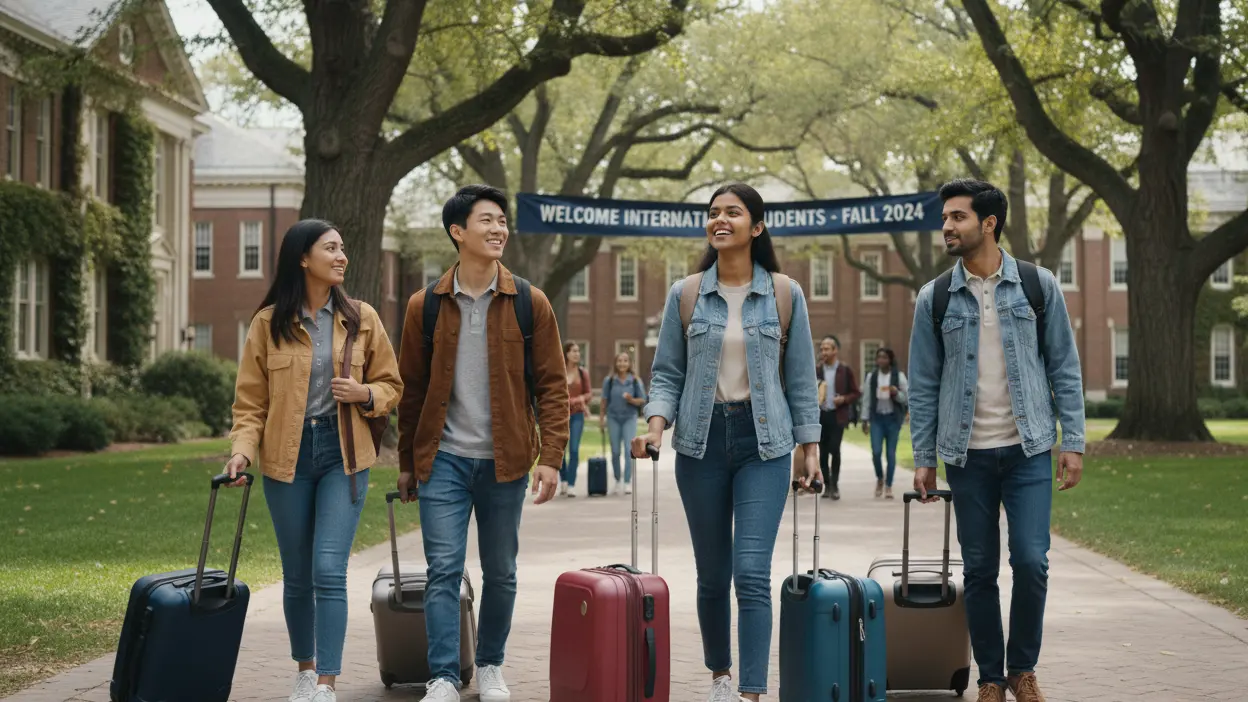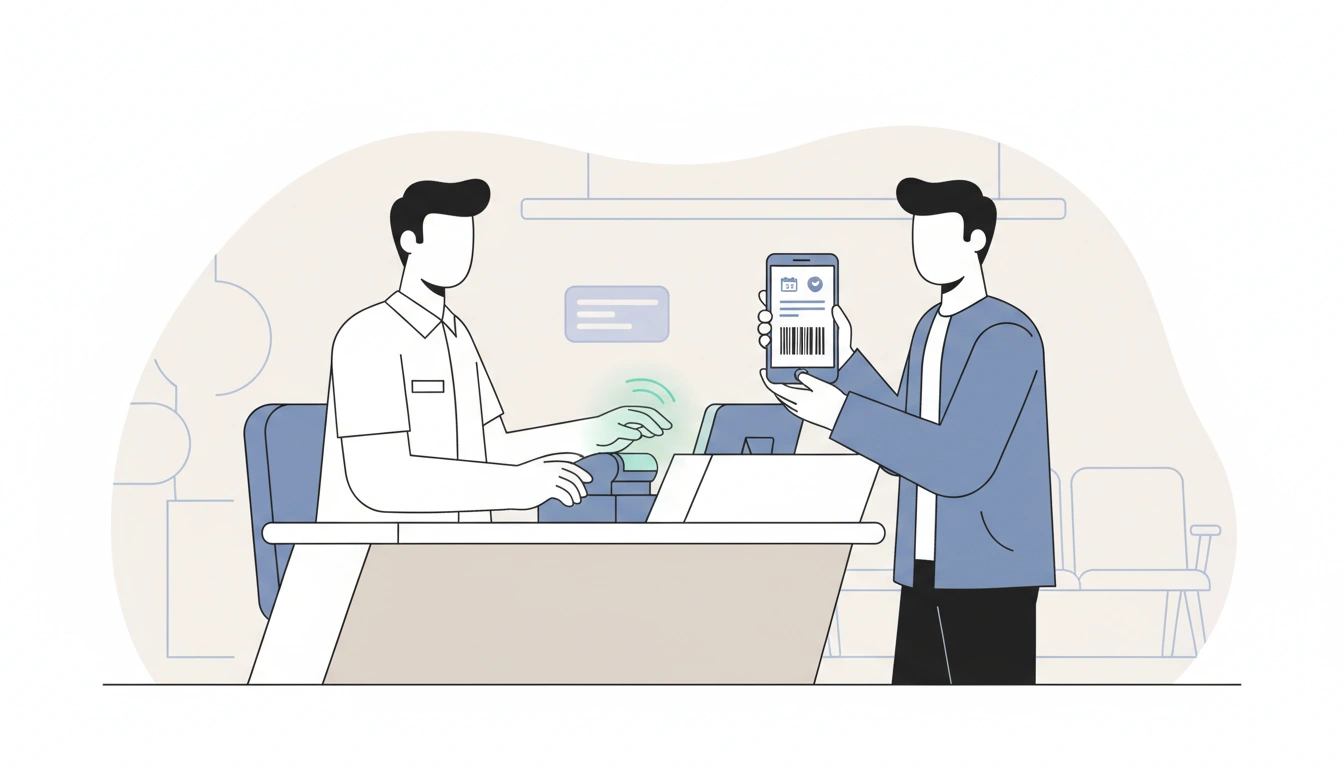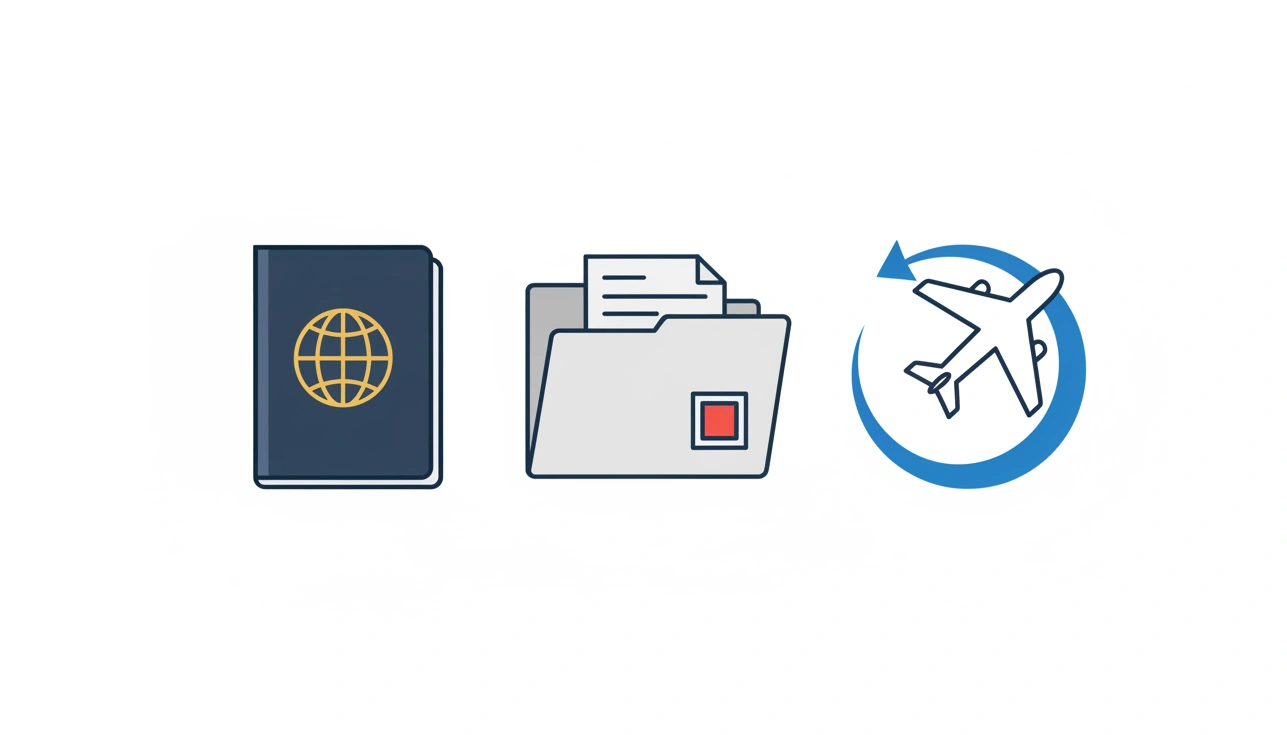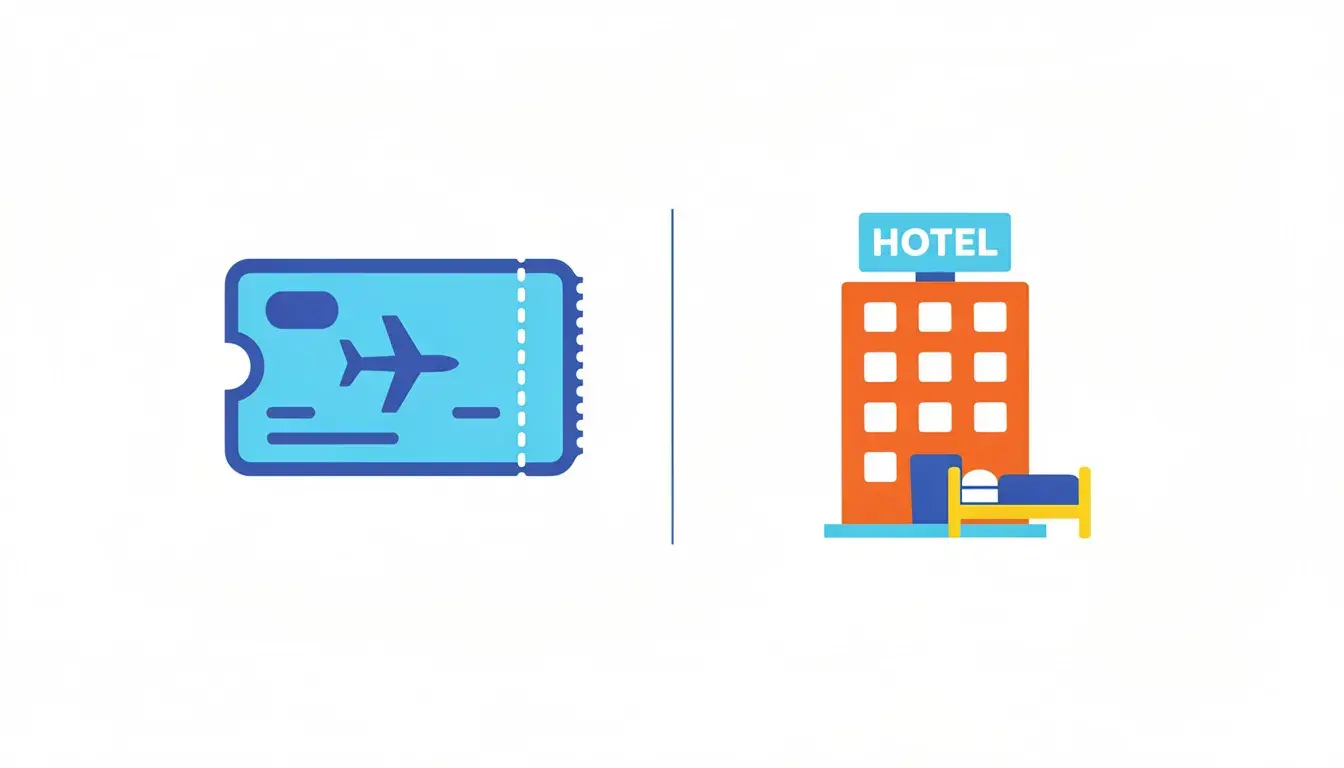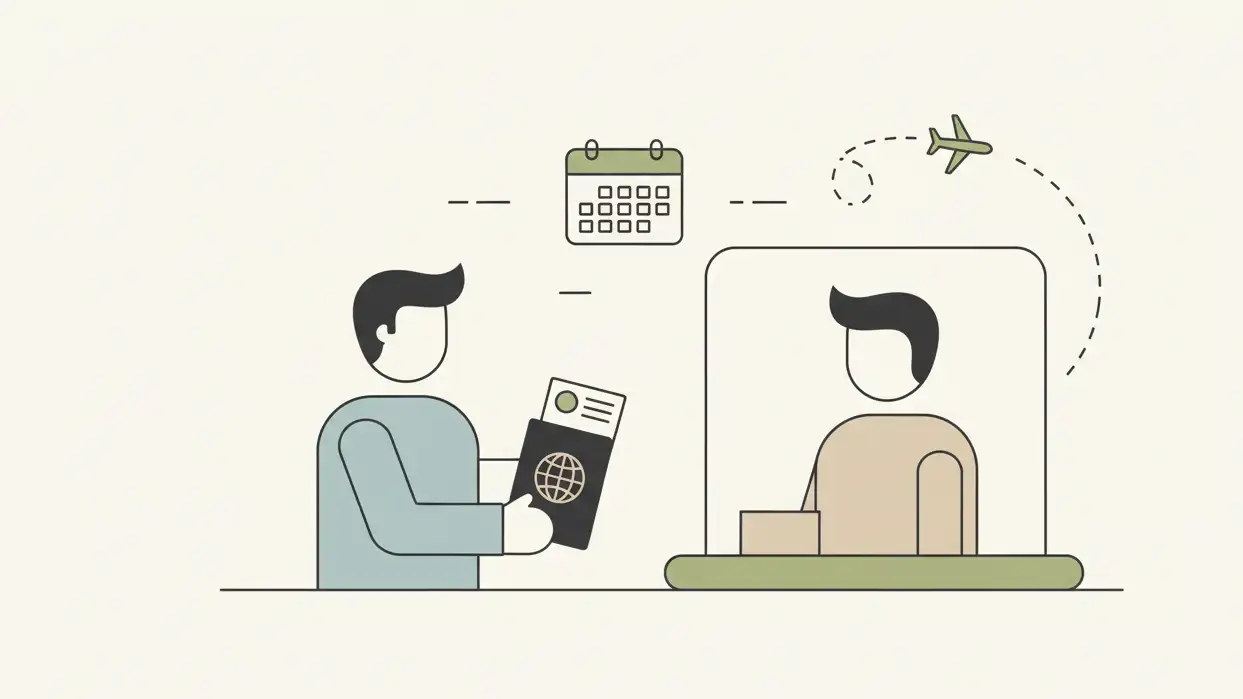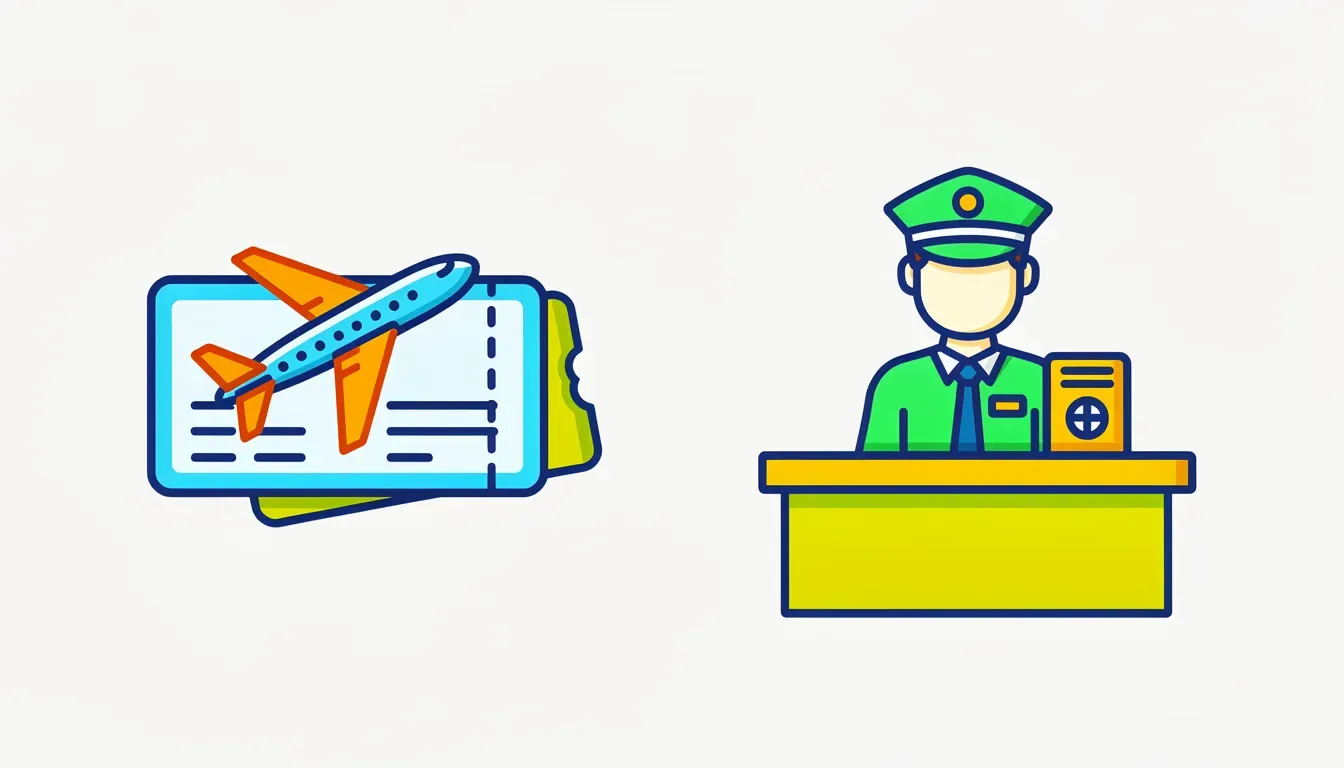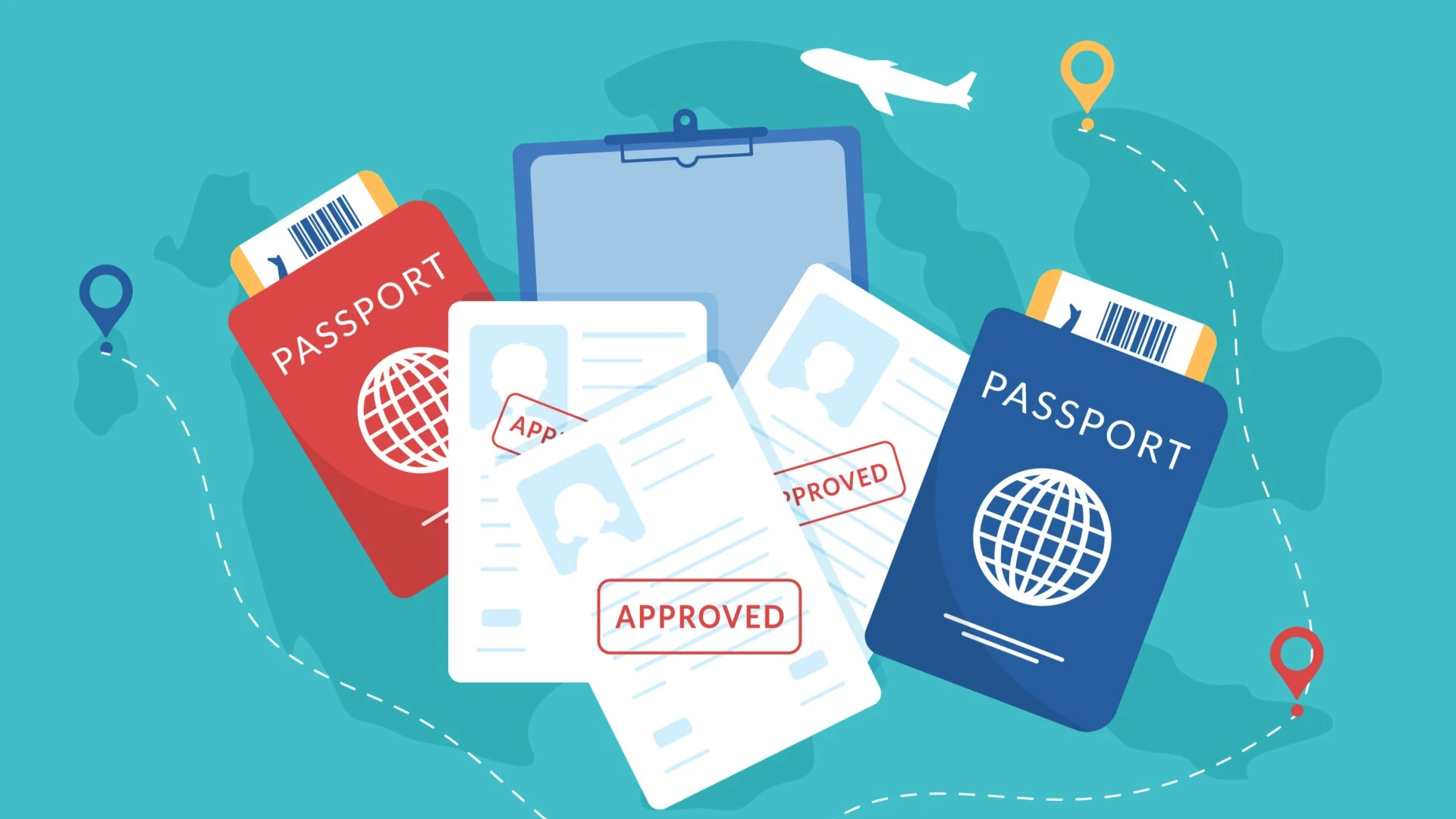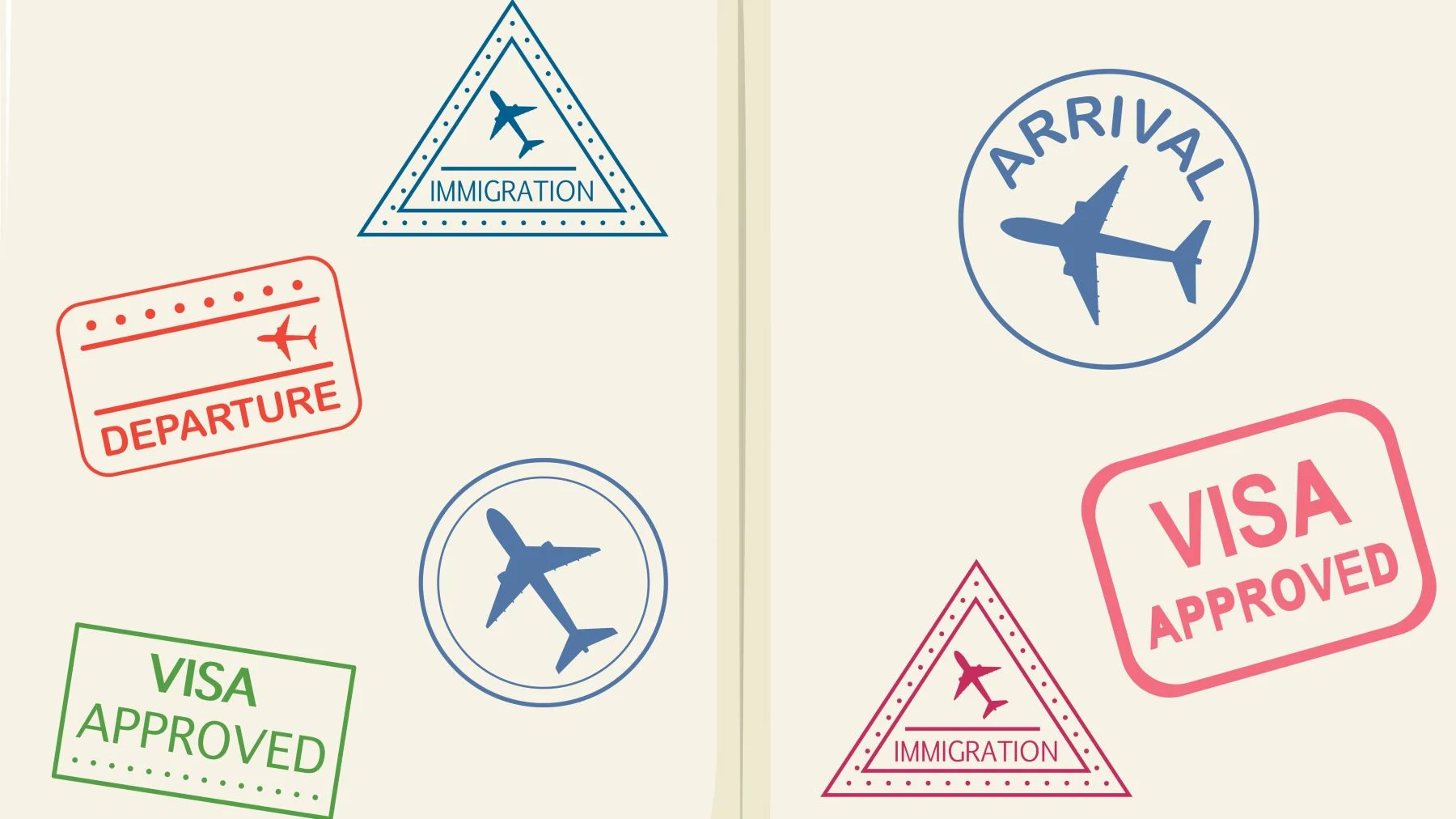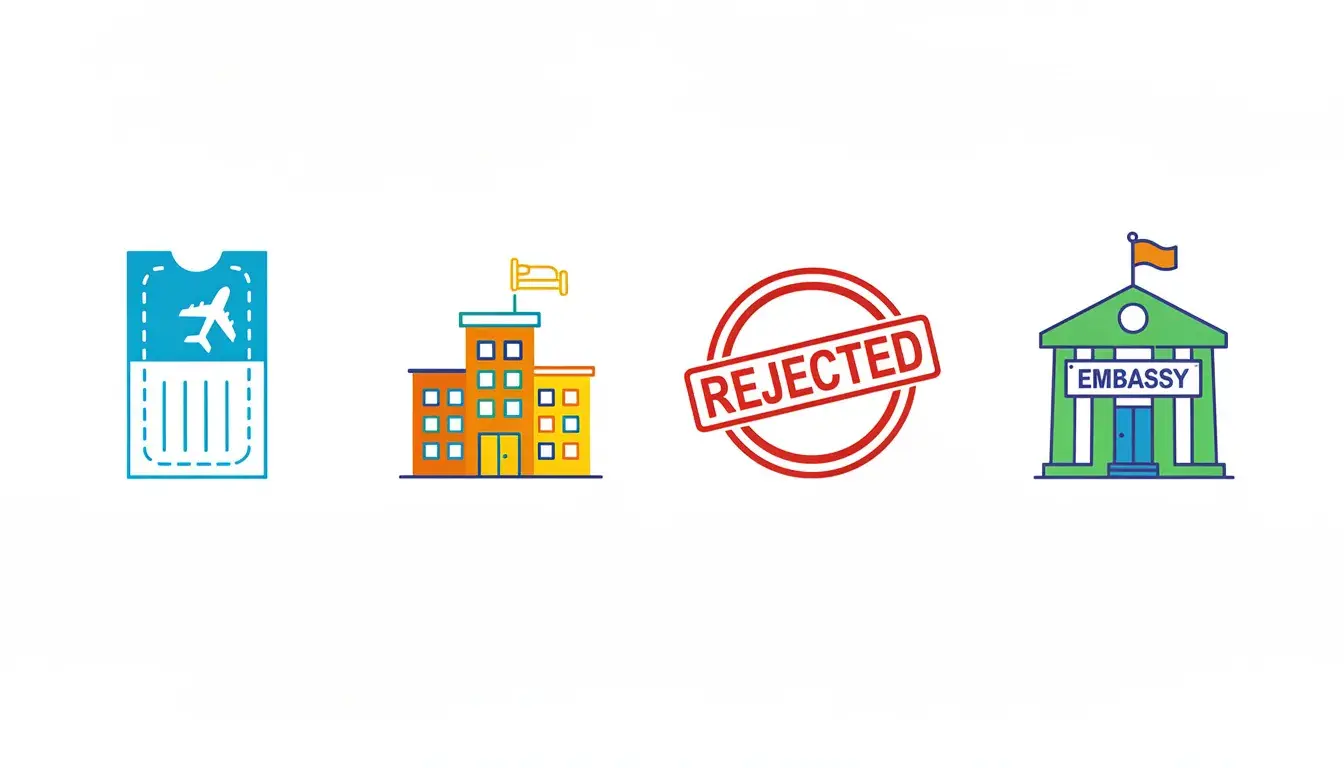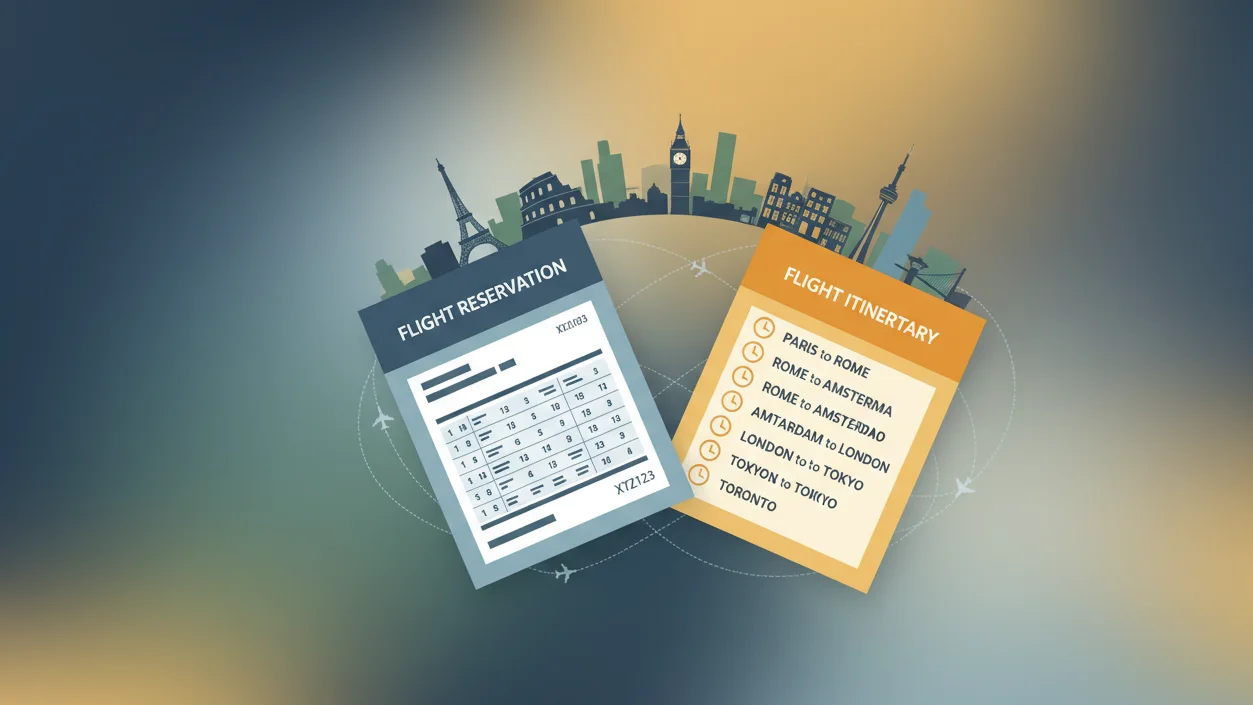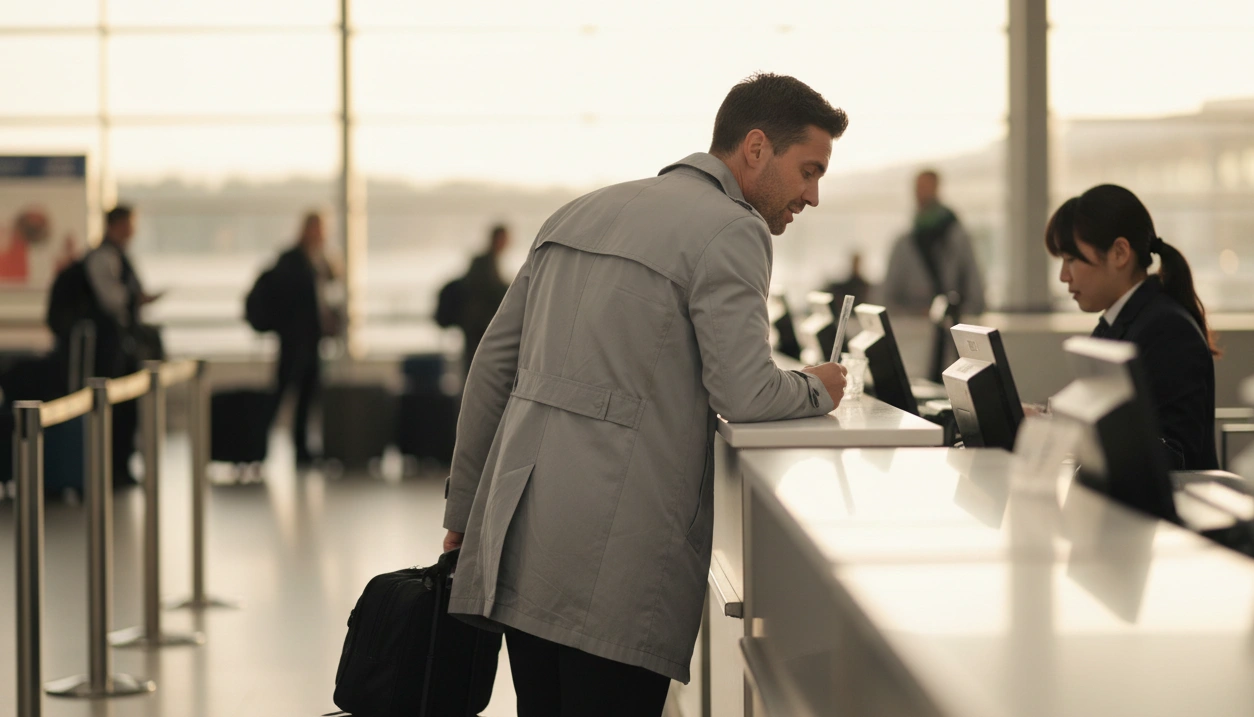Dummy Flight Ticket for F1 Visa: What Indian Students Need
Planning your move to the United States as a student can feel like juggling a dozen details at once. You have your I-20 form, SEVIS fee, DS-160, bank statements, and admission letters all lined up, and suddenly the question pops up: do you need a flight ticket for your F1 visa? The answer might surprise you—especially when considering a dummy ticket as a flexible option. Most students think a confirmed airline ticket is a must-have, but the reality is different, and a dummy ticket can simplify logistics without commitment.
Airlines, consulates, and U.S. Customs each have their own checkpoints, and knowing what matters most can save you time, stress, and money. Whether this is your first international journey, a family visit is involved, or you are simply figuring out travel logistics, understanding when a ticket is truly necessary makes your preparation smarter and smoother. For more insights on visa prep, check our FAQ or explore blogs on student travel. Learn about our team's expertise on the About Us page.
No — a paid flight ticket is not required for your F1 student visa. What U.S. embassies look for is a verifiable flight reservation showing your intended travel dates and return plan, not a fully purchased ticket. A dummy flight booking with a real Passenger Name Record (PNR) from BookForVisa.com provides embassy-compliant proof of travel that aligns with your I-20 form and SEVIS details. It helps demonstrate intent to return after your studies and prevents rejection due to missing itinerary documentation.
Last updated: November 2025 — verified against U.S. Embassy F1 visa interview and SEVIS documentation requirements.
Secure your visa application hassle-free with a reliable dummy ticket booking service that fits your needs.
Do You Really Need a Flight Ticket for Your F1 Visa?
When it comes to applying for your F-1 visa from India, most students start thinking about flights almost immediately. It’s natural to imagine yourself boarding the plane, excitement bubbling, and wondering if the visa process requires a ticket in hand. The good news is that a flight ticket is not mandatory for your visa application. A dummy ticket can be a smart, low-cost alternative for planning purposes.
Consulates and embassies focus on the documents that prove you are a genuine student and financially prepared for your studies. Understanding exactly what counts—and what doesn’t—can make the entire process more predictable and less stressful. Plan your travel smartly and book a dummy ticket for added flexibility.
F1 Visa Interview: Why Consulates Care More About Your Plans Than Your Ticket
Consular officers in India are trained to evaluate whether F1 visa applicants have a legitimate reason to study in the U.S. They look for evidence that you can cover your tuition, living expenses, and that you intend to return to India after your studies. A confirmed airline ticket is rarely part of this evaluation. For official guidelines, see the U.S. Department of State.
Here’s what the US consulate actually checks during an F1 visa interview:
- I-20 Form: This is your official proof of enrollment from your U.S. university. Officers verify that your program start date aligns with your intended travel.
- SEVIS I-901 Receipt: Shows that your student record is registered in the U.S. immigration system.
- DS-160 Confirmation: The application form provides personal and educational details, giving officers context for your interview.
- Financial Proof: Bank statements, scholarships, or sponsorship letters demonstrate your ability to pay tuition and living expenses.
- Academic Intent and Ties to India: Officers assess your academic history and plans, and whether you have family, property, or career incentives that will bring you back after studies.
You don’t need to show a purchased ticket to prove any of these points. In fact, spending money on a flight too early can backfire if your visa is delayed or denied. Instead, your focus should be on making sure all your documents are complete, accurate, and aligned. To expand on common pitfalls, visit our blogs.
One-Way Travel is the Norm for Indian Student visa applicants
Most students from India travel on one-way tickets once their F1 visa is approved. Airlines and immigration authorities in the U.S. are aware that students usually plan their return at the end of the program. Buying a round-trip ticket before securing your visa is not necessary and can sometimes complicate matters if your plans change.
Your travel window is generally flexible:
- Students can enter the U.S. up to 30 days before the program start date listed on the I-20.
- Arrival too early or too late from home country can cause issues with your SEVIS record, so always coordinate with your university’s international office.
Planning your travel smartly also means thinking about practical logistics. Airport pickup, temporary accommodation, or initial orientation events often require tentative dates. These can be coordinated without buying an actual ticket. Sometimes, universities will ask for expected arrival dates for planning purposes. This is where a time-limited reservation or dummy ticket can help, but it is optional, not mandatory. For more on student life abroad, see our About Us section.
When a Flight Reservation Can Actually Help
Even though a confirmed ticket is not required, there are situations where a temporary reservation is useful. Think of it as showing a rough plan rather than committing financially. For example:
- Airport Pickup Coordination: Many Indian students arrange rides from the airport with friends, family, or university programs. A tentative flight plan makes it easier to schedule.
- Temporary Housing or Hostel Booking: Some universities or private hostels ask for arrival estimates to assign rooms.
- Rare Requests from the Embassy: Occasionally, a consular officer might ask about your intended arrival. Having a time-limited reservation can give you a concrete answer.

A professionally issued reservation, sometimes called a dummy ticket, can serve these purposes without the cost or commitment of an actual flight. These reservations are fully verifiable and match your name and tentative dates with your I-20. For Indian students, this can be particularly useful if you are coordinating across multiple cities, managing a family member’s travel, or attending pre-departure sessions that require proof of your arrival schedule.
Services like those partnered with BookForVisa.com offer reservations with a verifiable PNR, valid for a short window. For about $15, you get a reservation that looks and functions like a real ticket for logistical purposes. You do not have to pay the airline, and you can adjust your travel dates later if your plans shift. This is perfect for first-time travelers or students who want to stay prepared without locking in a full ticket too early. To dive deeper into visa myths, explore our FAQ.
Keep Your Focus on I-20, Student and Exchange Visitor Information System (SEVIS) Fee, DS-160 And Finances
It’s easy to get caught up in thinking a ticket will impress the consulate and prevent visa denials. The reality is that what matters most are your documents and clarity of purpose. Your I-20, SEVIS receipt, DS-160, and financial proof are the items that will determine approval. A ticket, whether real or reserved, is just a support tool.
By understanding these priorities, you can plan your F1 journey in India strategically. You avoid unnecessary expenses, reduce stress, and have the flexibility to adjust your travel plans after visa approval. Think of any ticket or reservation as a convenience rather than a requirement. This approach keeps your process lean, focused, and professional. For additional tips, check related articles in our blogs.
Plan Your Travel: Finding the Right Timing
Even after understanding that a ticket is not mandatory, many students wonder when it actually makes sense to plan their travel. Timing can be tricky, especially for Indian students juggling admission deadlines, visa appointments, and personal schedules. Knowing the smart ways to organize your travel can prevent last-minute stress and avoid unnecessary expenses. Simplify your documentation by choosing a trusted dummy ticket booking service.
Plan Your Flight Only After Visa Approval
The safest strategy for most students is to wait until your F1 visa is approved before booking an actual ticket. Here’s why this approach works well for applicants from India:
- Flexibility with Dates: Programs may start earlier or later than expected. Booking after visa approval ensures you are not tied to a non-refundable ticket.
- Avoid Financial Loss: Airline tickets can be expensive, especially during peak travel seasons. A last-minute change due to visa delays can become costly.
- Ease of Coordination: Once your visa is approved, you can align your travel with university orientations, airport pickups, and temporary housing schedules without any guesswork.
For many first-time applicants, the temptation to “look ready” with a ticket is strong. But in reality, consular officers don’t expect a purchased ticket. They care about your intent to study and your preparedness to fund your education. Waiting until your visa is confirmed gives you peace of mind and ensures your travel plans are fully aligned with official dates.
Tentative Reservations Can Save You Headaches
Sometimes, waiting until visa approval isn’t practical. You may have family visiting from India, need to secure accommodation, or coordinate airport pickups with friends. In these cases, a temporary reservation, or dummy ticket, can help.
A few scenarios where this comes in handy:
- Coordination With Family: Parents or siblings traveling to see you off may need a flight plan. A temporary reservation allows them to plan without purchasing a non-refundable ticket.
- University Housing Requirements: Some campus housing offices in the U.S. ask for estimated arrival dates. A reservation provides a verifiable plan without a full ticket purchase.
- Consulate Queries: Rarely, a consular officer may ask for your expected arrival. A time-limited reservation can serve as a credible answer.
For Indian students, BookForVisa.com makes this process smooth. The reservations come with a live, checkable PNR, ensuring that your itinerary is verifiable if needed. These bookings can be issued instantly and adjusted later, giving you the flexibility to change travel dates once your visa is in hand.
It’s important to remember that these reservations are optional. They are not part of the visa approval criteria. Think of them as a tool to make your life easier, especially if multiple parties rely on your travel information.
👉 Order your dummy ticket today for seamless planning.
Keep Your Documents Consistent
Whether you are using a temporary reservation or booking after visa approval, consistency is key. Here’s what to focus on:
- Name and Spelling: Make sure your name on the ticket matches exactly with your passport and I-20. Even minor differences can create confusion during airline check-in or at CBP.
- Travel Dates: If using a reservation, align the tentative travel dates with your program start date and the SEVIS record. This avoids appearing inconsistent in any official checks.
- Financial Documents: If you provide a reservation to coordinate with housing or family, ensure it doesn’t conflict with your proof of funds. Keep the amounts, dates, and travel context logical and verifiable.
Small mismatches can raise unnecessary questions and lead to visa denials. Maintaining consistency across all documents ensures smoother interactions with consulates, airlines, and university staff.
Planning for Multiple Scenarios
Indian students often have more than one variable to consider. You might be traveling with family, attending orientation programs, or planning for a temporary stay before the semester begins. A clear approach helps:
- Single-Student Travel: One-way flights booked after visa approval usually work best.
- Family Accompaniment: Consider temporary reservations for family members to manage their own travel flexibility.
- Digital Nomads or Short-Term Programs: If your course is a summer or online hybrid program, a verifiable reservation can demonstrate a concrete plan without committing to travel too early.
Using tentative bookings in these cases is practical. They provide a visible plan while keeping your financial options open. Students from India often find that this method reduces stress while giving universities and family members confidence in their travel arrangements. To learn more about diverse student experiences, visit our About Us page.
Ticket Planning is About Strategy, Not Requirements
Booking a flight before your F1 visa is never a strict requirement. What matters is your preparedness, your documents, and your ability to demonstrate clear intent to study in the U.S. Temporary reservations can make logistical tasks easier, but are optional.
The key is to approach travel planning strategically: align dates with your program, coordinate with family and university staff, and keep all documentation consistent. Whether you book a ticket after approval or use a verifiable reservation, the goal is the same—smooth, predictable, and stress-free travel from India to the U.S.
Navigating Your F1 Visa Journey: Smart Planning for International Students
Even after understanding the visa rules and travel checkpoints, Indian students often wonder how to organize their journey while keeping their student status intact. Coordinating around your Form I-20, arrival, and university deadlines is crucial.
Knowing when to travel, when to use temporary reservations, and how to align with your academic program helps avoid unnecessary stress. Whether you are attending a language training program, preparing for practical training, or coordinating family travel, having a clear strategy keeps your transition smooth. For quick answers to common queries, refer to our FAQ.
Timing Your Arrival to Match Your Student Status
For F1 students from India, arrival should align with your program start date listed on the form I-20. You can enter the U.S. up to 30 days before classes begin. This window is especially helpful if your program begins with a language training program or orientation organized by a SEVP-approved school.
Keep these points in mind:
- Confirm your start date on your form I-20 and ensure it matches your travel plans.
- If you are coming from a previous institution, coordinate any transfer deadlines carefully to avoid gaps in student and exchange visitor status.
- Allow time before program begins to set up housing, open a bank account, or participate in orientation sessions.
Waiting until your visa prior approval is confirmed ensures flexibility. Booking too early may result in losing money if your visa issuance is delayed. Planning with a valid visa and verified confirmation page from a temporary reservation helps Indian students make practical, risk-free arrangements.
Working With Your University’s International Office
Your international office is a key resource for non-immigrant students. They work with your designated school official to maintain your student status, track program completion, and advise on compliance with immigration services.
For Indian students:
- Share your final travel plans so they can coordinate on-campus employment or work off-campus authorizations.
- Discuss practical training options, including off-campus employment or curricular practical training, and make sure you submit all paperwork correctly.
- Keep copies of your Form I-20, SEVIS fee receipt, and confirmation page from temporary reservations.
Your international office ensures that your enrollment at a SEVP-approved school aligns with federal requirements for non-immigrant students, helping prevent issues that could lead to severe economic hardship or questions about your home country ties.
Using Temporary Reservations to Simplify Logistics
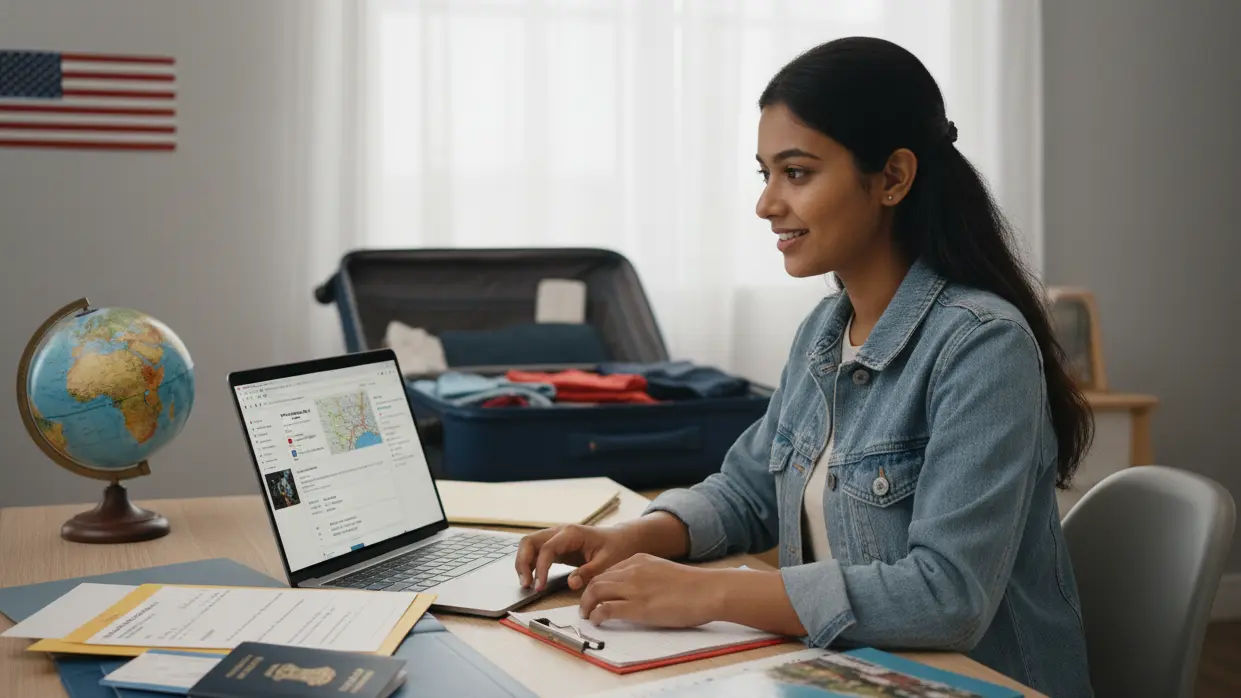
While a purchased ticket is not required for visa issuance, a dummy flight ticket, legal for embassy applications, can simplify logistics:
- Provides proof of final travel plans for your academic institution or a consular officer.
- Helps arrange airport pickups, housing, or pre-semester orientations.
- Offers flexibility to adjust dates if your program begins later than expected.
For Indian students, BookForVisa.com provides verifiable reservations with a PNR that aligns with your Form I-20 and intended travel dates. Reliable dummy ticket providers book you with major airlines like Emirates, Lufthansa, or Qatar Airways, creating a legitimate-looking itinerary without committing financially.
This approach is especially useful if you are attending a language training program, transferring from a previous institution, or coordinating travel for multiple family members. It helps maintain student and exchange visitor compliance while planning practical training or temporary employment opportunities.
Maintaining Compliance and Preparing for Program Completion
Once you arrive in the U.S., your focus is on maintaining student status and compliance as a non-immigrant student. Key responsibilities include:
- Attending classes for a full degree program load as required by your academic program.
- Reporting changes in program completion dates or program extension requests to your international office.
- Following the rules for on-campus employment or work off-campus authorizations.
Indian students should also plan for program completion to avoid jeopardizing their visa status or optional practical training opportunities. If you intend to apply for permanent residence or continue studies after the program ends, keeping documentation accurate—including your valid form, confirmation page, and SEVIS records—ensures compliance with immigration services.
Keeping Everything Consistent
Consistency is critical. Your Form I-20, temporary reservations, valid visa, and financial support documentation should align with your academic program and application process. Maintaining alignment prevents issues with consular officers, immigration services, or F1 visa regulations.
Proper planning around arrival, course load, practical training, and program completion lets Indian students focus on studies without worrying about compliance or severe economic hardship. Temporary reservations help coordinate logistics while keeping your options open, ensuring that your U.S. journey starts smoothly and your student status remains protected.
After Visa Approval: Navigating Travel and Early Logistics
By the time your F1 visa application is approved, most of the stressful paperwork is behind you. Yet, students from India often find themselves juggling questions about final travel plans, work opportunities, and coordinating with family or housing arrangements. This stage is all about logistics, flexibility, and understanding what optional steps can make your first weeks in the U.S. smoother. Stay ahead of your embassy requirements and book a dummy ticket for peace of mind.
Planning Your Arrival Without a Ticket Panic
One of the biggest concerns for first-time international students is whether they must purchase a ticket before their visa appointment. The truth is, a confirmed ticket is rarely required for visa approval. Your focus should be on ensuring that all documents—form I-20, SEVIS receipt, financial proof, and admission letters—are complete and accurate.
Arrival timing is important but flexible. You can enter the U.S. up to 30 days before your program starts. This window allows you to:
- Arrange temporary housing or university dorm assignments.
- Attend orientation sessions or pre-program language workshops.
- Schedule airport pickups with family, friends, or university transport.
For students who want a reference point for travel logistics, a temporary reservation or verifiable dummy ticket can be useful. It gives you a concrete plan without committing financially to a full ticket. This is especially helpful for students coordinating with family members traveling from India or needing to finalize early housing arrangements.
Coordinating Housing and Early Campus Life
Indian students often arrive before classes begin to settle in. Dorms, hostels, and off-campus apartments sometimes ask for tentative arrival dates. Sharing these with the housing office ensures you have a bed or room ready when you land.
Temporary reservations or dummy tickets can make this process simpler. You can provide proof of arrival dates without having bought a full airline ticket. This is particularly useful when:
- Coordinating with roommates or family members.
- Planning short-term stays before your official semester begins.
- Ensuring smooth access to university services such as orientation or campus ID issuance.
Even without a ticket, having a tentative travel plan allows your university to prepare for your arrival. It reduces last-minute confusion and helps you feel more organized when navigating your first days on campus.
Foreign students Considering Work and Training Opportunities
Many F1 students plan for practical training opportunities during or after their program. While these are not related to visa approval, planning your travel with potential work or internship timelines in mind is smart.
- On-campus employment usually begins after arrival and doesn’t require pre-purchased tickets.
- Optional practical training or curricular practical training may require coordination with your university’s international office. Arriving in time for document submission and orientation is important.
Temporary reservations can help you plan around these opportunities. By having a verifiable arrival date, you can confidently schedule internships, training programs, or university onboarding sessions without committing to a flight too early.
Managing Family and Multiple Travelers
Students from India often travel with family members or coordinate with friends arriving at different times. Flexible planning is crucial:
- Airport pickups and housing arrangements are easier to coordinate when you have a tentative arrival schedule.
- Temporary reservations help communicate travel plans to family members without financial risk.
- If a family member’s schedule is uncertain, having a verifiable but adjustable plan avoids last-minute complications.
Even if you are traveling solo, understanding how your travel fits with roommates or orientation sessions can save stress during your first days on campus. Ensure your travel plans look complete—book a dummy ticket today.
Focus on Documents, Not Tickets
At the end of the day, your F1 visa approval hinges on your Form I-20, SEVIS receipt, financial proof, and clarity of academic intent—not a purchased flight. Temporary reservations or dummy tickets are optional tools for organization and convenience. They help coordinate housing, family, and training opportunities, but are not a requirement for consulates or airlines.
For students from India, the key is planning strategically, keeping your documents consistent, and focusing on your academic program. With this approach, your first journey to the U.S. becomes predictable, manageable, and far less stressful.
Wrapping Up: Travel Smart, Not Stressful
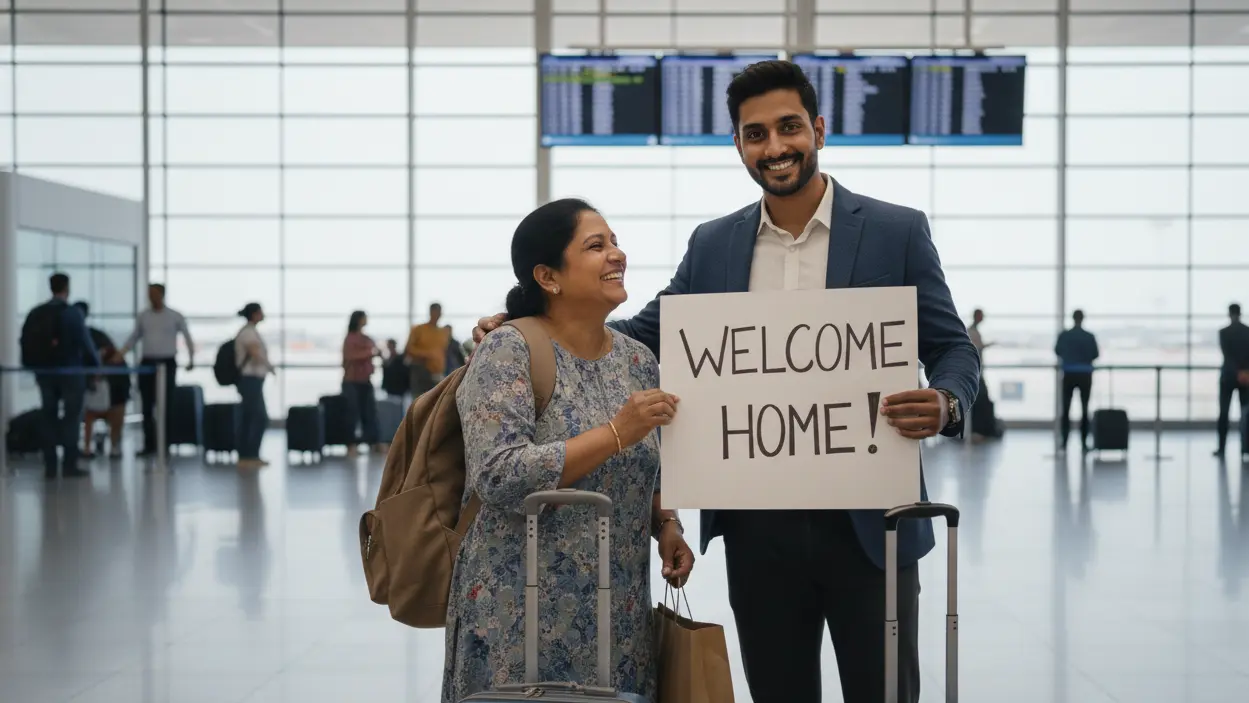
You don’t need to buy a flight to win approval. Focus on a clean file: Form I-20, SEVIS receipt, a passport valid for travel, sufficient funds, the application fee, and any visa issuance fee. Keep your story aligned with the educational program, a planned full course of study, and the program end date shown on your I-20, which should sit before your stay’s expiration date. As a non-immigrant student, protect your non-immigrant status so you can use post-completion OPT and then depart the United States on time.
Officers may run customs enforcement and national security checks or request additional documents like standardized test scores or past secondary school records. If you’re comparing f or m visa paths or planning visa renewal, keep dates, funds, and intent consistent. Temporary reservations are optional tools, not requirements. Make every visa application smoother with a reliable dummy ticket booking.
What Travelers Are Saying
Related Guides
Frequently Asked Questions
What if my F1 visa is delayed—can I still use a dummy ticket?
Absolutely. Dummy tickets are time-limited and can be reissued quickly if your visa timeline shifts, ensuring you stay flexible without extra costs.
Is a dummy ticket accepted by U.S. universities for housing?
Yes, many universities accept verifiable reservations for initial planning. Always confirm with your international office, but a PNR-backed dummy ticket works well.
How does a dummy ticket help with family coordination for F1 travel?
It provides a shareable itinerary for airport pickups or joint flights, allowing family to book confidently while you adjust post-visa.
Can I get a dummy ticket for multiple routes if unsure of my final U.S. destination?
Yes, services offer options for various routes, and you can switch easily to match your I-20 program location.
What's the difference between a dummy ticket and a real flight reservation for F1?
A dummy ticket is a hold without payment, expiring soon, while a real reservation may involve fees—ideal for pre-visa uncertainty.

